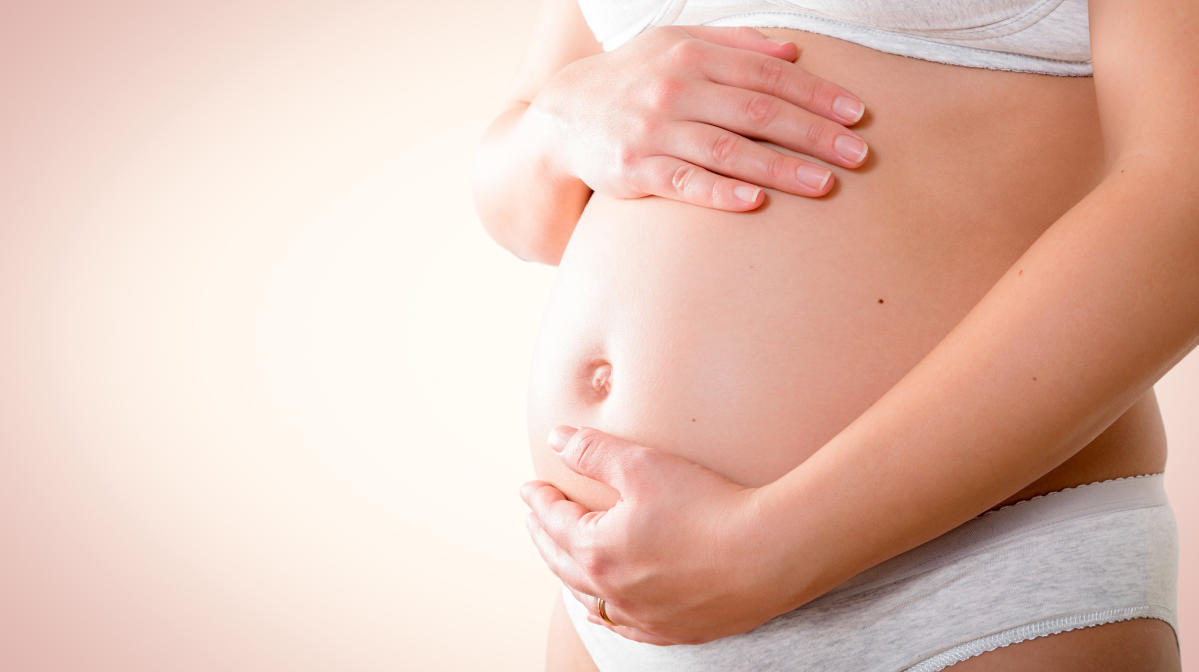BALTIMORE — A ballot question establishing a fund to make payments to parents of newborn children in the city of Baltimore, in hopes of combating child poverty, has been approved to appear on ballots this fall.
The Maryland Child Alliance, a coalition of teachers and advocates that collected more than 13,000 signatures in support of the initiative, was notified Monday by the Baltimore Board of Elections that the group had reached the 10,000-signature threshold to secure a spot on the ballot.
The question, which is one of several on the ballot this year, seeks to establish a Baby Bonus Fund that would provide one-time payments of $1,000 to parents upon the birth or adoption of a child.
Organizers say the payments will improve the lives of children and families, which will benefit the broader economy. The first months of a child’s life are critical for development, but they’re also when parents are most economically vulnerable, said Nate Golden, president of the Maryland Child Alliance, which launched in 2022.
“Families can’t afford the things they need, and you’re left with this horrible recipe that can impact a child forever,” Golden said. “We want to lift all children out of poverty, but where do you get the most bang for your buck? It’s with babies and newborns.”
If approved by voters, the fund, which is structured after Baltimore’s Children and Youth Fund, would cost the city at least $7 million annually to make $1,000 payments to the roughly 7,000 families that welcome a child each year. It would be up to Baltimore’s City Council and mayor to figure out where the money needed to fill the fund would come from.
While the fund is aimed at reducing child poverty, the payments would be universal, not means-tested. Golden said making the fund universal would make it easier for the city to administer but also more flexible to help parents who might be missed by other tax breaks.
“We want to make sure we help the families that are consistently forgotten by all levels of government, and the easiest way to do that is a universal payment,” he said.
Baltimore’s proposal bears a strong resemblance to a program that began this year in Flint, Michigan. There, parents get $1,500 during pregnancy and another $500 during a baby’s first year. As with Baltimore’s proposal, there are no income restrictions. Baby bonuses are more common abroad, where they have sometimes been used to support low fertility rates. Numerous European countries offer universal benefits.
Baltimore is already experimenting with other forms of city-subsidized income. A guaranteed income pilot program has been providing $1,000 in unconditional monthly cash assistance to select Baltimore parents since August 2022. A study conducted midway through the pilot, which ends this month, found that participants increased their monthly income and the number of people living independently also increased. Unemployment among participants remained more than double that of the average Baltimore resident, though the labor force participation rate rose from 64% to 71%.
Unlike the Baby Bonus, the pilot program had an income requirement. Participants had to be young parents, between the ages of 18 and 24, with incomes at or below 300 percent of the federal poverty level — about $69,000 for a three-person household.
The topic of guaranteed income has become popular among progressives in recent years, but the idea remains polarizing. Supporters of guaranteed income believe that a widespread system could break the cycle of poverty, while critics suggest that it would encourage counterproductive spending.
Ballot questions like the Baby Bonus can be placed on the Baltimore ballot through petitions that collect at least 10,000 signatures from qualified voters in the city. City ballot measures almost always pass. Baltimore voters have not rejected a ballot question since 2004, when they were asked to lower the age limit for serving on the Baltimore City Council.
The Baby Bonus ballot question is the second to be approved by the Elections Commission so far this year and appear on the November ballot. The first to pass was a measure sponsored by People for Elected Accountability & Civic Engagement that asks voters to halve the size of the City Council. David Smith, executive chairman of Sinclair Broadcast Group and co-owner of The Baltimore Sun, primarily funded that petition drive.
Also likely to appear on the ballot is a question that would ask voters to reduce and cap the city’s property taxes. That measure, proposed by a group called Renew Baltimore, garnered more than 23,000 signatures at the state Board of Elections last month. Signatures also have been submitted by groups hoping to establish a community wealth-building fund and a fund to advocate for a regional transportation authority.
Last month, a group led by former mayoral candidate Thiru Vignarajah began collecting signatures in support of a ballot question that would ask voters to create a special park system that would not be disrupted by private development. The proposal is aimed at thwarting the proposed Harborplace redevelopment, which calls for 900 apartments in a contiguous tower on the city’s waterfront.
The deadline for submitting signatures for proposed ballot questions is July 29.
Baltimore has seen a surge in petitioning activity in recent years as it’s become clear that the process is the fastest way for citizens — in some cases the wealthiest or best-funded — to pass laws. The cost of campaigns to put questions on the ballot has also skyrocketed. People for Elected Accountability & Civic Engagement has spent more than $326,000 this cycle in support of its council-reduction measure, while Renew Baltimore has dropped more than $268,000, campaign finance data shows.
The Baby Bonus campaign, however, bucked that trend. Records show organizers spent just $3,553. Golden said most of the petitions were distributed by volunteers.
_____







